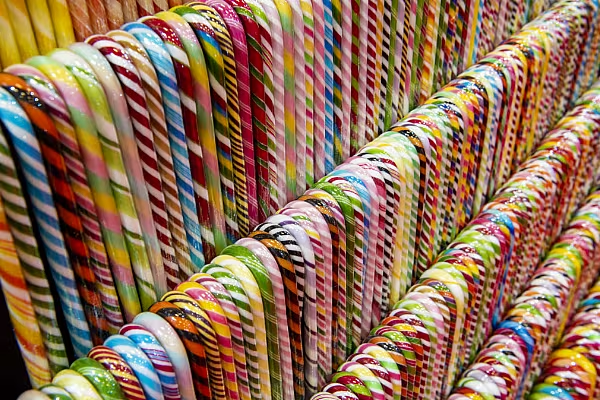Sweets, alcoholic beverages, and homemade products are the top three most popular products for German shoppers who give their friends and relatives food as gifts, a new survey has revealed.
The survey was conducted by the opinion research institute Civey on behalf of BVE - the Federation of German Food and Drink Industries.
Among those who already knew what they are giving away for Christmas, 43% of the respondents said it will also gift food.
Chocolate, pastries, or sugar confectioneries emerged as the most popular within this cohort, with 60% opting for these.
Around 37% opted for alcoholic beverages such as wine, liqueur, or spirits, while 35% said they would give homemade food, such as biscuits or jams.
Popular Christmas Gifts
BVE general manager Christoph Minhoff said, "The products of the German food industry not only play a major role at Christmas festivities, they are also on the table as gifts. Food from Germany stands for quality and enjoyment. That is why they are so popular as Christmas gifts.
“By the way: Our member companies have also ground the flour for the cookies baked at home and refined the sugar for the homemade jams - so we are almost always there, even when it comes to homemade products.”
The survey also revealed that more women (41%) than men (29%) opted to gift homemade food. In addition, a higher percentage of women (65%) chose to give sweets as gifts compared to men (53%).
More men (41%) opted to give away alcoholic beverages, compared to women (34%).
Overall, students are most likely to hand over homemade food (51%) as well as supporters of the Greens (46%), while the self-employed (21%) and FDP voters (24%) are least likely to do so, BVE added.
Other Findings
The survey also found differences in the preferences for food items as gifts between East and West Germany, with 53% of respondents from the new federal states saying they also give away groceries at Christmas. Only 39% in West Germany said they gave away food.
In terms of preferred products, 28% of respondents in East Germany opted for luxury items such as coffee, tea, or tobacco for Christmas, while in West Germany it was just 15%.
The survey also found that a quarter of the respondents want to spend over €100 on groceries as Christmas gifts this year, while 22% aim to spend between €26 and €50, 20% between €51 to €100, and 17% under €25.
Among respondents between 18 and 29 years of age, as many as 44% said they wanted to stay below the €25 limit, with more women (23%) wanting to remain within this budget than men (10%).
The staid also highlighted that 29% of men and 21% of women estimated a budget of more than €100.
Read More: BVE Describes Unfair Trade Practices Bill As A Step In The Right Direction














